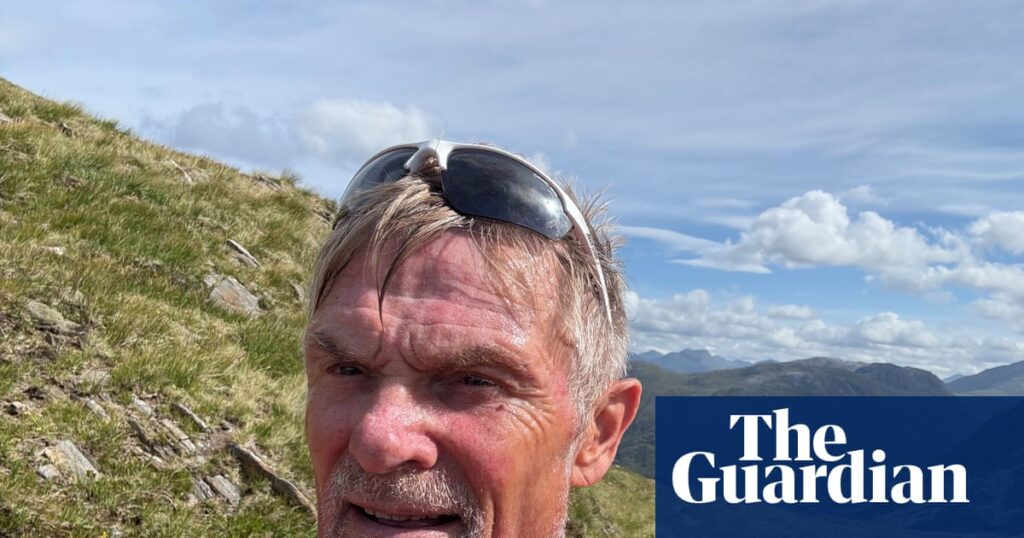The first fortnight was tough – terrible blisters, a flare of gout that needed a visit to A&E and the rapid realisation that running 200 marathons in 200 days around the coast of Great Britain would not be a walk in the park.
But Steve James, a 65-year-old retired banker from Devon, has found his feet, and on Thursday reached the halfway mark – an average of 100 marathons in 100 days.
“In those first two weeks I was thinking: ‘What have I done?’” James said. “I’ve been running for 50 years and never get blisters – but I had horrendous ones for the first 10 days. My feet felt like they had been put in a vice and squeezed. The gout was a bit of curveball but the hospital prescribed some stuff and it went away. Now I feel fine.”
James’s progress along the coastlines of England, Wales and Scotland is being tracked by experts from the University of Exeter, who are keen to find out the effects of such an extreme challenge on an older person.
He set off from Topsham, on the south coast of Devon, in April and headed to Kent in south-east England. He then ran north to John o’Groats in north-east Scotland and is on the Scottish west coast steadily working his way south.
There is no set route. He has a plan but adapts and changes it. “If you’re in Devon and Cornwall and Wales, there is a clearly defined coast path. In Scotland there’s virtually no coast path, so you’re carving out your own routes. I’ve been on the Isle of Mull, which was never in the original itinerary, but I hopped on and off and it worked.”
The challenge is to do, on average, a marathon every day. Some days, depending on where the accommodation is, it might be a bit less; others a bit more, and he is not trying to clock good marathon times.
“I am not flat out every day. There’s a lot of walking involved, a bit of jogging, a bit of running – a real mix. And I’m stopping a couple of times each day just to sort of rest up, if you like, have a coffee, a cake or whatever, and then get going again.”
“It’s all about routine,” said James, who is from Devon and trained for his challenge on Dartmoor. “It’s all about getting up at the same time, leaving at the same time; it’s a bit like going to work. I love the physical challenge, the idea of stretching myself physically. I’m not especially talented at things – you wouldn’t want to play golf with me, you wouldn’t want me on your football team. But I can keep going.”
He is not following the sort of diet an elite athlete might adopt. When the Guardian spoke to him, James had eaten cereal, a bacon baguette, cake and was planning fish and chips for dinner, washed down with a couple of pints.
The Exeter researchers assessed James before his departure and he sends data daily for them to analyse. They are studying his calorie intake, oxygen levels and muscle measurements to examine the effect of the challenge. He has lost about 10kg but the team has seen no ill-effects to his health.
Freyja Haigh, a nutritional physiology researcher at the University of Exeter, said: “Steve gives us a real insight into how this type of endurance impacts the body of an older person. We’re unsure at the moment if Steve’s weight loss is from fat or muscle mass.”
James, who is raising money for Cancer Research UK and the Scouts, passes the time by listening to music and is also learning Cymraeg – Welsh. By the time he gets to Wales, he hopes to be able to order a pint in the language.
He thinks the most difficult stretch physically will be the north coasts of Devon and Cornwall. “I’m kind of hoping by then my body’s completely acclimatised and I’ll be able to cope with that.”


